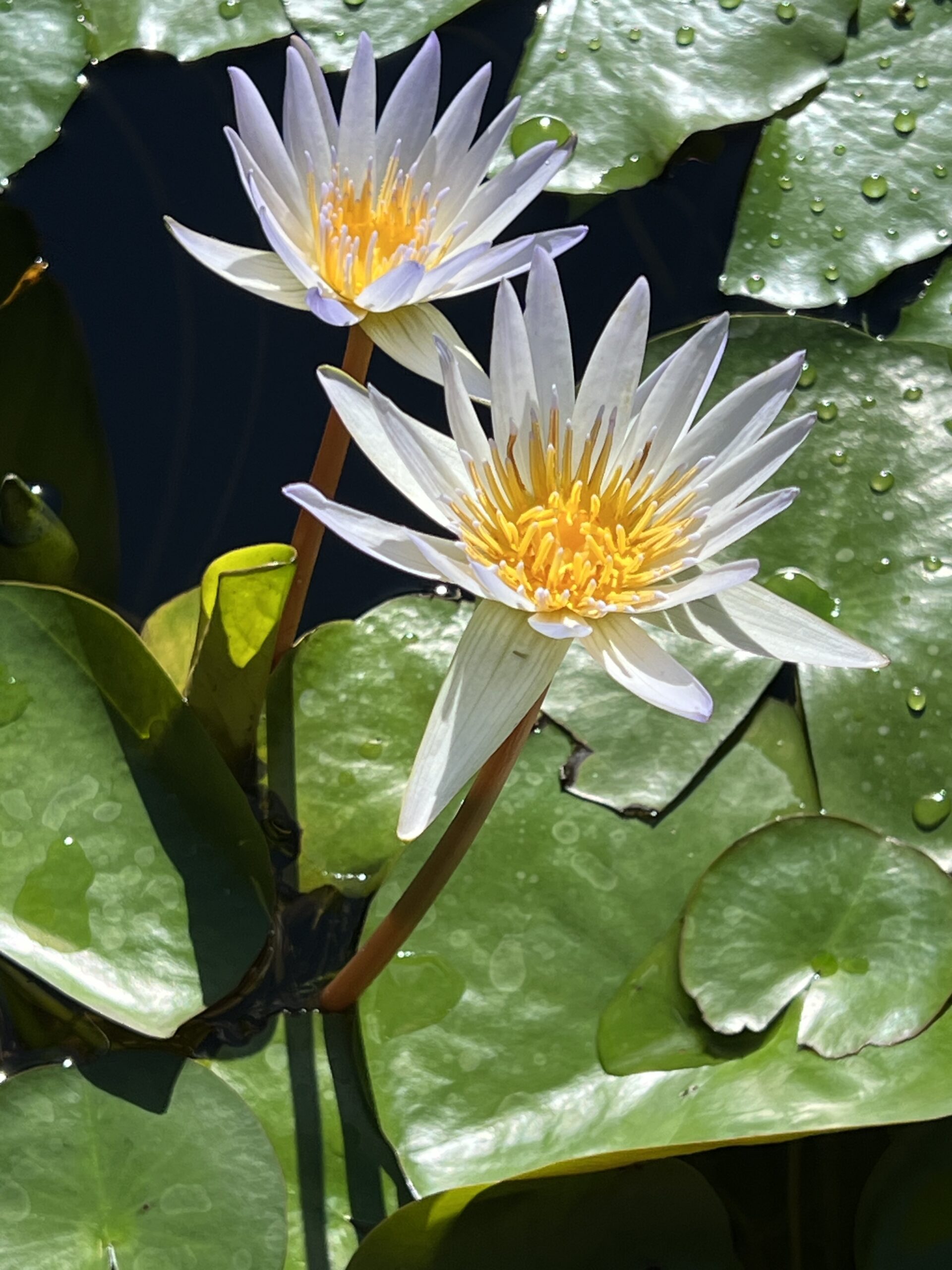“Do you believe in rock ‘n’ roll,
Can music save your mortal soul…?” (”American Pie”, by Don McLean)
I don’t know about music — though I suspect it can — but I do know that gardening helps save MY mortal soul. Today I pulled apart a big rectangular flower arrangement that a friend gave me from her daughter’s virtual bat mitzvah (the first of any kind of bat mitzvah that I’ve had the honour to attend) and layered them into my six-months-old composter. Separating the moss and leaves, wilted blooms and rusted tacks from the florist’s-foam-holder brought me back to the early days of my compost initiation.
Bought to recycle the detritus of my two big Christmas wreaths, the compost barrel that I installed in December has now had time to “forgive” my earlier error of adding pine needles to the mix, and, after countless infusions of vegetable matter, one compost compartment is almost ready to spread on the garden. How monumental is that! I’ve designated it for our new avocado and strawberry papaya trees (that I suspect might bear fruit in the next millennia). But hey, I’ve just harvested three out of five of our white pineapples, and that seemed highly unlikely a half-year ago (particularly because we were scheduled to go home in April, when they were still deeply green). Not to mention the scores of bananas and oranges, lemons and limes that have been harvested over time. And now, drum roll please, we can pick parsley, basil, dill, thyme, oregano, sage, rosemary, mint, radishes, green onions, arugula and, one day soon, plum tomatoes. Digging, watering, sowing seeds, waiting patiently, and of course harvesting produce an upswell of satisfaction that’s hard to duplicate. There’s really no word in the Hawaiian vocabulary that I’ve learned that describes that elated feeling of accomplishment, of being one step closer to self-sufficiency. So I settled on the expression ’Kou Ola Pono’.
In the Hawaiian language, ’kou’ translates as ’your’ and the word for health is ‘ola’ meaning ‘life’. The word ’pono’ has strong cultural and spiritual connotations of ’a state of harmony or balance’. In old Hawai‘i, the natives relied heavily on the ‘āina (the land) and their akua (gods) for their health and healing. Thus, ’kou ola pono’ defines good health as a balance between care of the land, including the human body, and the mana — energy or spirit of a person or place. Since pono stands for balance and integrity, it is believed that our actions must be infused with this quality in order to serve a worthy purpose. To be ’pono’ means to be in a state of harmony or balance with oneself, others, the land, work and life itself.
Reflecting on my training in transpersonal studies, kou ola pono echoes the Bhuddist tenet of right livelihood: “Our vocation can nourish our understanding and compassion, or erode them. We should be awake to the consequences, far and near, of the way we earn our living”, (Thich Nhat Hahn). The Christian teaching of the Golden Rule, or ’Do unto others as you would have done unto you’ also reflects the ideal of kou ola pono.
Imagine our world if more people embraced such humanitarian ideals.
While several islanders I know have or are building family compounds that include much more comprehensive gardens than mine, with coffee farms for revenue and even hunting and fishing practices to sustain their families, I wonder what living pono means for someone like me? Or for you, my mainland friends and city dwellers? Each week, as I learn new Hawaiian words and values, I ponder the ways these humanitarian ideals apply to my life, and manifest in the culture around me. According to Wikipedia, such ideals as I observe in Hawaïi are based on “an active belief in the value of human life, whereby humans practice benevolent treatment and provide assistance to other humans, in order to improve the conditions of humanity for moral, altruistic and logical reasons.” I have seen this benevolent treatment take the form of magnanimous financial donations to local aid agencies. I see other friends supplying meals to a posse of homeless youth (who, thanks to COVID, are ubiquitous throughout the West) or assembling care packages for families living on the margins of society.
These examples inspire and motivate me to get out and join my friends in their community causes, but there is one small but significant thing I can do without leaving my living room. I can suspend judgment, even as I read news or watch tv, and instead, see other people as part of one big human family, the aloha ohana, sharing the strength and synergy that grow from a foundation of belonging and community. A foundation of living pono. Fostering a sense of global community that starts with cleaning up my own back yard.
Which reminds me, I seem to have veered off from the soul-saving properties of gardening with which I started this blog, so I’ll end with a note-to-self for other would-be “herbies*”: egg shells, avocado pits, and pistachio shells all take forever to decompose. Wishful thinking won’t alleviate this. Just. Say. No. to putting them in your compost. You’ll thank me later.
*herbies: short for the Martha Stewart wannabes of the grow-your-own-herbs community. Currently numbering me.
